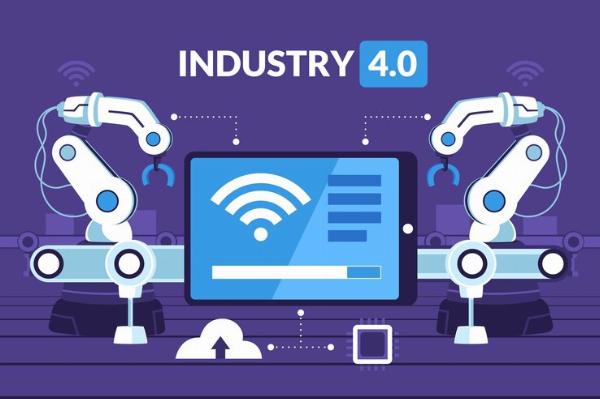Why is Industry 4.0 Essential for Innovation in Manufacturing?

Strong 8k brings an ultra-HD IPTV experience to your living room and your pocket.
Industry 4.0 heralds a transformation in manufacturing by fostering innovation, increased efficiency, and productivity. This new era of manufacturing is characterized by the integration of advanced technologies that optimize production, improve product quality, and discover new opportunities for innovation. This agile and data-driven manufacturing environment allows businesses to stay ahead of the competition. Dubbed as the Fourth Industrial Revolution, Industry 4.0 goes beyond traditional automation allowing smart factories to adapt and evolve.
Industry 4.0 - Driving Innovation in Manufacturing
Industry 4.0 is driving innovation in manufacturing by integrating intelligent digital technologies into manufacturing processes. Automation, IIoT, AI, robotics, and big data are a set of technologies driving innovation in manufacturing. The integration of technology creates smart manufacturing that enhances productivity, flexibility, and efficiency and facilitates intelligent decision-making and customization in manufacturing and supply chain operations.
Optimizing Production Efficiency – Industry 4.0 introduces smart technologies in the manufacturing sector by embedding IoT and sensors throughout production. This allows manufacturers to collect and analyse data to discover inefficiencies, potential bottlenecks, or equipment malfunctions. Besides, AI-powered predictive maintenance allows companies to anticipate equipment failures and proactively schedule maintenance. Big data analytics analyse the data to provide actionable insights to optimize the production processes. This significantly enhances production efficiency, minimizes waste, and reduces downtime.
Allowing Mass Customization – The demand for personalized products is rapidly growing in the market today, with consumers preferring products that meet their distinct choices and preferences. Industry 4.0 with its additive manufacturing or 3D printing allows manufacturers to produce customized products on a large scale at a greater speed and lower costs. In Industry 4.0, production parameters are automatically adjusted through AI systems and connected machines that accommodate custom orders without interrupting the entire production line. The production flexibility allows manufacturers to cater to the customized product demand without compromising quality and efficiency and help them stay competitive and innovative in the market.
Boost Supply-Chain – Industry 4.0 fosters AI and big data analytics powered advanced supply-chain management allowing manufacturers complete transparency at every stage of the supply chain. This allows manufacturers to create resilient and adaptable supply chains with real-time monitoring and data-driven insights that help them predict potential disruptions, adjust sourcing strategies, and optimize logistics planning. IoT-enabled sensors in the supply-chain system allow manufacturers to track raw materials and product conditions and locations in real-time. In case of delay, deliveries are automatically rescheduled to minimize impact. This helps to foster innovation in supply-chain management.
Fostering Innovation through AI and Automation – AI and automation being the key components of Industry 4.0 have a great impact on manufacturing. Manufacturers make use of these technologies to focus on innovation in the processes and to move ahead from the repetitive tasks. A large amount of data is analysed through AI-driven algorithms to unleash trends and opportunities in the manufacturing sector. Quality control measures are enhanced through machine learning models that efficiently detect the smallest defects that are hard to notice by humans. In Industry 4.0, autonomous systems and robots manage boring and repetitive tasks with speed and accuracy. This further frees up the workforce who can focus on innovation and problem-solving. Testing and prototyping of new products are sped up due to automation that allows manufacturers to bring innovations to market. Digital twin technology allows manufacturers to simulate diverse production scenarios by testing and tweaking new designs without causing a disturbance in their production.
Conclusion
Industry 4.0 is significant in introducing innovation in manufacturing, as it optimizes production, allows mass customization, boosts the supply chain, and fosters creativity through AI and automation. The integration of advanced technologies in the manufacturing sector allows manufacturers to stay ahead in the market, bring innovation, and consistently adapt to consumer demands. With more and more companies adopting Industry 4.0 technologies, the manufacturing sector will become efficient, smarter, and responsive to the needs of the market and to environmental challenges.
Note: IndiBlogHub features both user-submitted and editorial content. We do not verify third-party contributions. Read our Disclaimer and Privacy Policyfor details.





